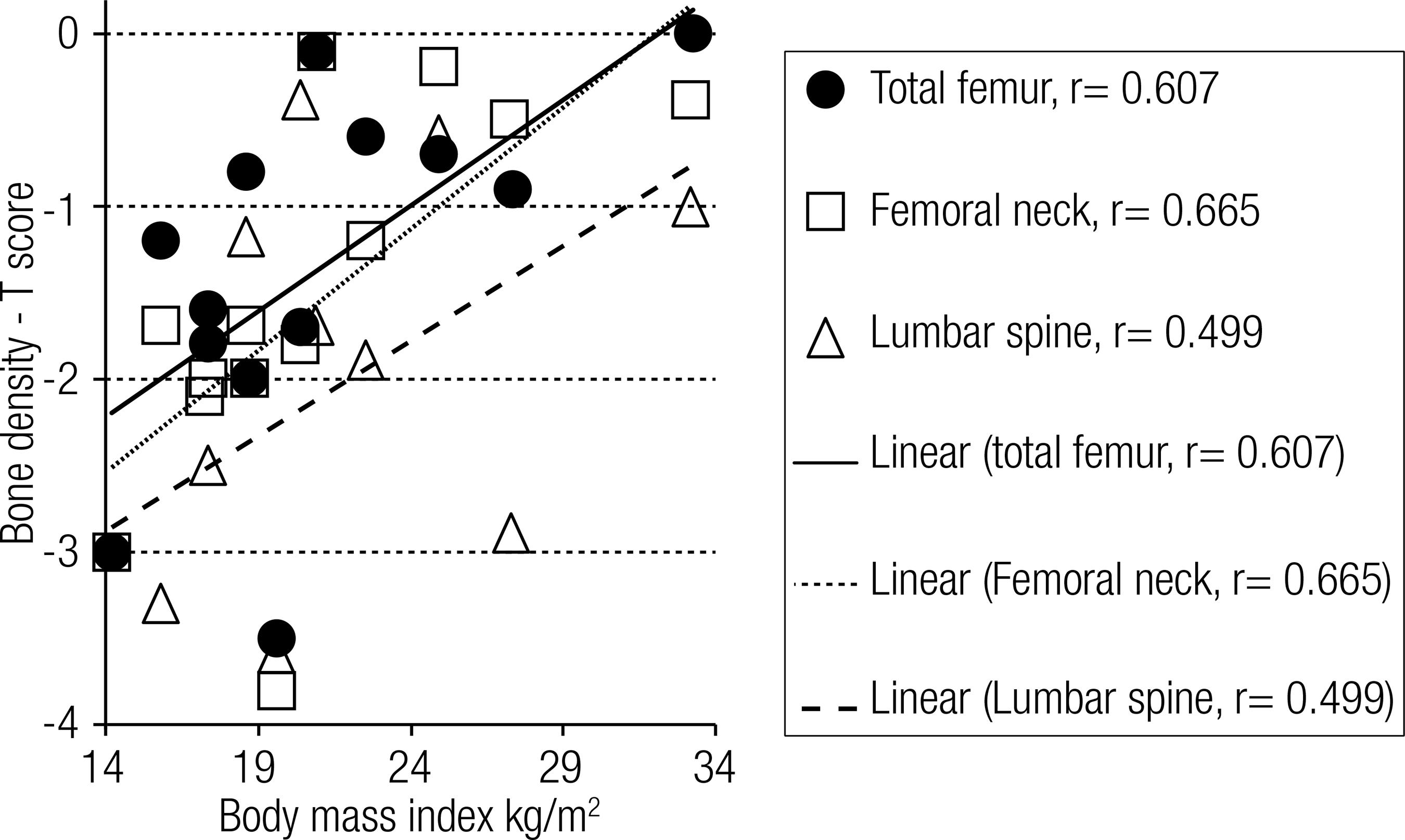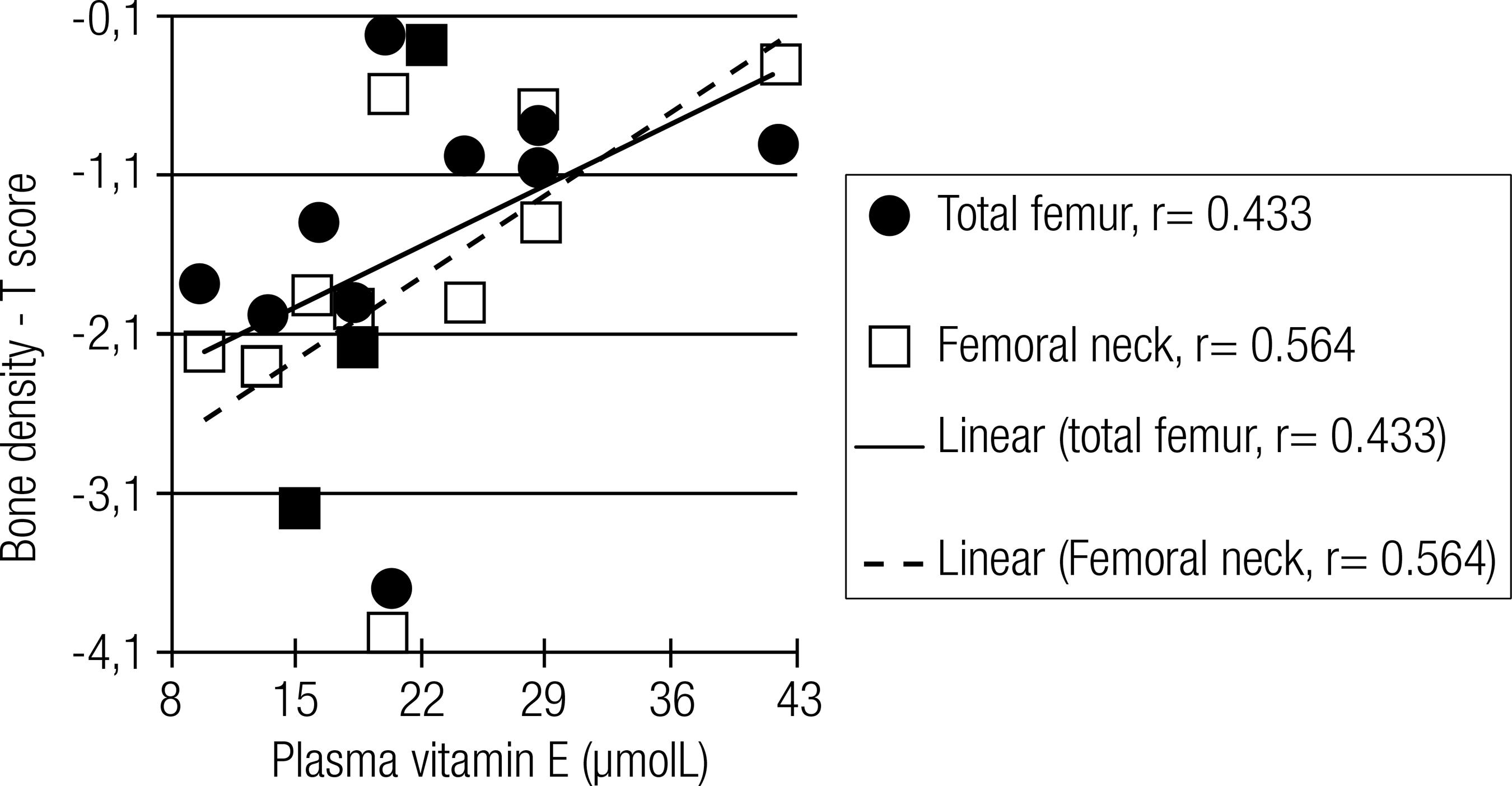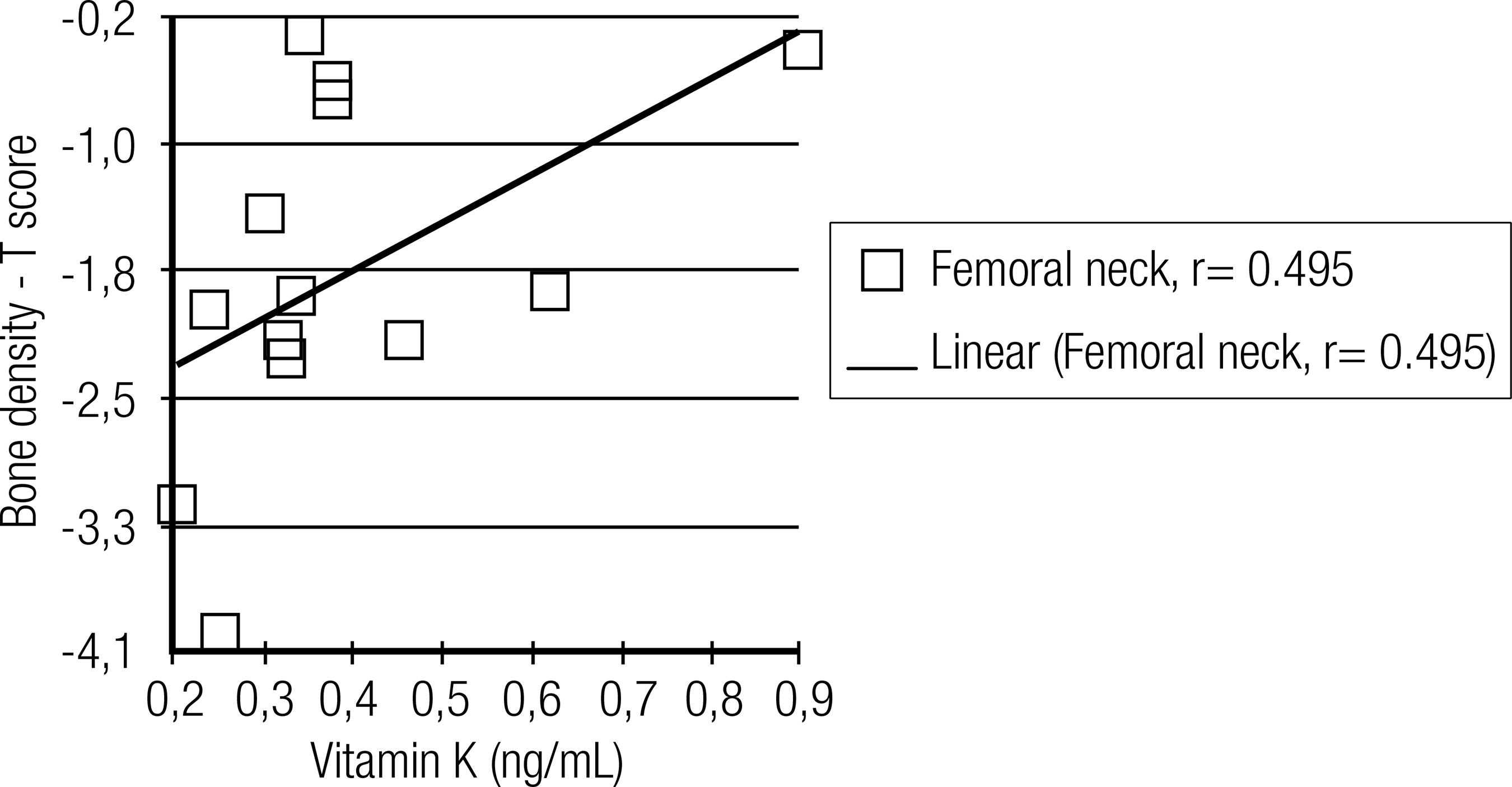Objective
Bone loss has been established as a major extra-intestinal complication of short bowel syndrome (SBS). The purpose of this study was to correlate bone mineral density (BMD) with body mass index (BMI), serum vitamin and mineral levels in patients with SBS.
Material and methods
The study was conducted on 13 patients (8 male and 5 female, 54.7 ± 11.4 years) with SBS (residual small bowel length of 10 to 100 cm). We determined the food ingestion, anthropometry, serum levels of vitamins C, A, D, E and K, as well as serum and urinary levels of phosphorus and calcium. BMD was measured by dual-energy x-ray absorptiometry (DXA).
Results
Osteopenia and osteoporosis was diagnosed in all but one SBS patient. Serum levels of vitamin D were low in all volunteers. Sixty-one percent of patients had vitamin E deficiency; hypovitaminosis A and C occurred in one subject. BMI and C, E and K vitamin serum levels correlated with T-score of BMD.
Conclusions
Osteopenia and osteoporosis were common in SBS patients. There was a correlation between BMD and the serum levels of vitamins C, E and K, an indicative that such vitamins may influence bone health. Arch Endocrinol Metab. 2015;59(3):252-8
Short bowel syndrome; bone density; vitamins; minerals




